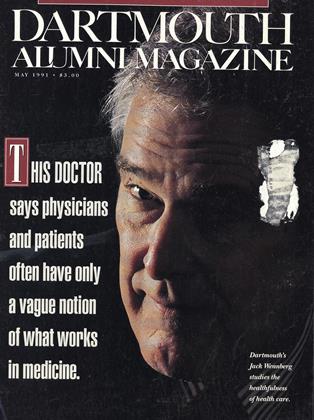BECAUSE OF THE UNCERTAINTY PRINCIPLE, doctors often err on the side of overtreating padents so, in the language of economics, excess "supply" creates its own demand. Research that Wennberg and his colleagues undertook in Boston and New Haven in the early 'Bos illustrate these upsidedown economics.
Both cities had then, as they do now, sophisticated university teaching hospitals offering top-quality health care to patients. But Bostonians were twice as likely as their Connecticut cousins to be hospitalized for a range of conditions: joint replacements, chronic bronchitis, coronary surgery, lower-back pain, gastroenteritis. The two cities demonstrated no discernible differences in population mortality rates.
The same phenomena are seen around the nation, Wennberg contends: high health-cost cities like Des Moines, lowa, are characterized by high numbers of hospital beds and medical specialists per capita, while lower-cost communities like lowa City aren't.
 View Full Issue
View Full Issue
More From This Issue
-
 Cover Story
Cover StoryDOCTOR WENNBERG'S UNCERTAINTY PRINCIPLE
May 1991 By Susan Dentzer '77 -
 Feature
FeatureTHE BLUE ZOO
May 1991 By Robert Eshman '82 -
 Feature
FeatureStory Time
May 1991 By Nancy Millichap Davies -
 Article
ArticleDR. WHEELOCK'S JOURNAL
May 1991 By "E. Wheelock" -
 Article
ArticleTHEATERS OF WAR
May 1991 By Professor Lynda Boose -
 Class Notes
Class Notes1980
May 1991 By Michael H. Carothers







